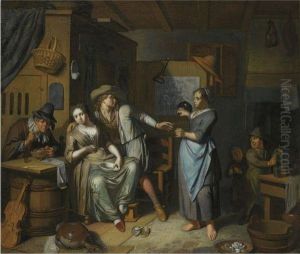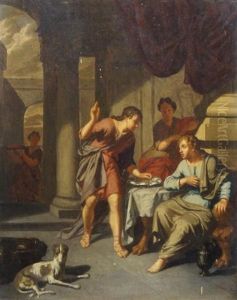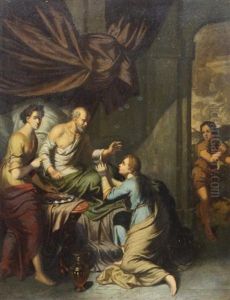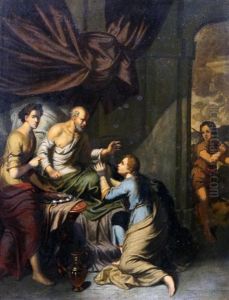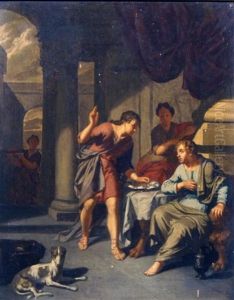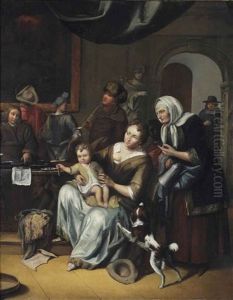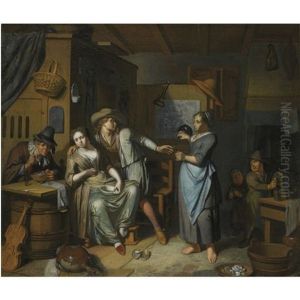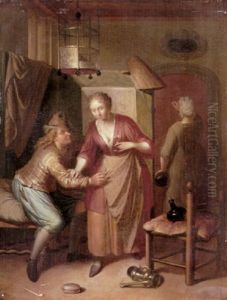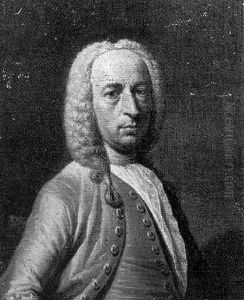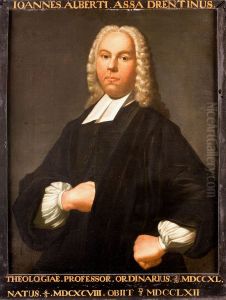Frans Decker Paintings
Frans Decker was a Dutch painter born in 1684 in Haarlem, Netherlands. He was known for his genre scenes, portraits, and landscapes. Decker’s work reflects the Dutch Golden Age painting style, which is characterized by its attention to detail, a focus on everyday life, and a high value placed on realism.
Decker received his artistic training in Haarlem, which was a vibrant artistic center at the time. He likely apprenticed under a master painter, as was customary during this period. However, there is no concrete information about his early training or the specific influences on his work during these formative years. What is clear is that he developed a competence in creating works that were in high demand at the time, particularly among the growing middle class who favored scenes of domestic life and leisure.
Despite the lack of extensive records of Decker’s life and career, it is known that he became a member of the Haarlem Guild of St. Luke, which was a common professional association for artists. His membership in the guild suggests that he was a respected artist within the local community. Decker's paintings often depicted scenes of taverns, parties, and domestic interiors, which were popular among Dutch patrons who enjoyed seeing their contemporary lifestyle reflected in art.
Decker’s works were characterized by their lively representation of figures and a skillful use of lighting, which he used to enhance the narrative quality of his scenes. His color palette was typically Dutch, with subdued tones punctuated by highlights, and his compositions were carefully constructed to guide the viewer’s eye through the scene.
While Frans Decker may not have gained the same level of fame as some of his contemporaries, his paintings still represent an important facet of Dutch cultural history and the artistic legacy of the period. Unfortunately, his works are not as well-documented as those of other Dutch masters, and as such, his contributions to art history are not as widely recognized.
Decker died in 1751 in Haarlem. His works, while perhaps not as prolific or as celebrated as others from the period, remain valuable to art historians and collectors for their depiction of 18th-century Dutch life and their embodiment of the aesthetic values of the time.
